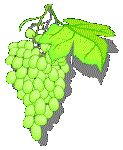 GRAPE Grimoire.
GRAPE Grimoire.
Copyright 1999 By Scott Gray.
The GRAPE Grimoire is a supplement for GRAPE: Generic
Roleplaying All Purpose Engine, though it can be played with other
game systems. See the main page, to learn GRAPE
rules. This supplement, like GRAPE, is distributed free of charge. You
may give out copies, so long as the text is not modified and no fees are
charged for the copies distributed.
Introduction:
The GRAPE Grimoire is a description of possible magic systems for use in
GRAPE. They describe possible rules of reality to govern magic in a
campaign world where magic exists. These systems are usable in various
combinations, in various genres. Many classic magic-using characters
combine two or more of these magic systems.
In most games, the GM works to keep the game "realistic" -- which
means that s/he must make rulings that allow the characters' lives to make
sense within the context of the physical laws. By adding magic to a
campaign, the Game Master has decided to add in laws of nature which do not
exist. S/he is advised to think through exactly how those laws of nature
work, and the effect which that will have on the game world, well in
advance.
Charming:
Magic is performed by the force of will. The charmer can use his or her
magic to make a desired occurance more or less likely. In a game context,
this means that the charmer can invoke her/his power to make something more
likely to occur -- halving the chance of the thing failing to happen on its
own (e.g. making heads have a 75% liklihood of coming up on the next flip of
a coin). The cost of using charming is that for each time it is used, the
GM will increace the liklihood of strange bad things happening to the
charmer (e.g. dressed up in his expensive rented tuxedo and already late for
the ball, the charmer passes under a bridge just as a large jar of tomato
sauce falls off the back of a truck, strikes the column such that it breaks
open, and douses the charmer with tomato sauce) each time this power is
used, until one of the strange things does happen. The frequency and
intensity of these bad effects, depend on the specific campaign.
Dualism:
Magic is performed by recognizing that there is more than one layer of
reality, and using the other layers of reality -- as well as the tension
between the mundane layer of reality and the others -- to produce magical
effects. Some dualists meditate and use force of will to separate their
own mind/spirit from their bodies, in order to "travel
astrally." Others use certain meditation or centering skills to
bring elements of other realities into the mundane layer of reality.
Fetishism:
Magic is performed by the creation of magical fetishes that make some things
in life more or less likely -- or which simply grant good or bad luck to the
holder or owner of it. Fetishes include magic number squares, divining
rods, astrological charts, or written prayers. Most fetishists have skills
in theology, mathematics, linguistics, silversmithing, or other skills that
are helpful in the physical design of the type of fetishes that the
fetishist specializes in.
Mysticism:
Magic is performed by bringing one's mind in harmony with the fundamental
spiritual underpinnings of life. Such magic does not necessarily impose the
character's will on nature -- rather, it changes the character's will so the
character becomes a channel for the will or way of the cosmos itself, and
the will of the cosmos thereby comes into effect. Most mystics have skills
in meditation, to bring their will in alignment with that of the cosmos.
Joan of Arc is a famous mystic.
Naturalism:
Magic is performed by knowing the amazing natural properties of certain
plants, stones, or beasts. Most naturalist mages have an in-depth knowledge
of zoology, botany, geology, human physiology, and various natural sciences.
Alchemists are naturalists. Albertus
Magnus is a famous naturalist.
Sorcery:
Magic is performed by the use of lost knowledge. A sorcerer doesn't
understand what s/he is doing or how it works, but tries to work magic by
following a cookbook formula -- each formula being a different
"spell." S/he may be a scientist by nature, who tries to figure
out why and how the magic works, but for the most part a sorcerer does
magic by following certain steps precisely. Many mages of other sorts
rely on elements of sorcery, using old formulas which have worked or
arbitrary hand gestures or magical words in doing their magic. Merlin is
a famous sorcerer.
Summoning:
Magic is performed by powerful spirits,
demons, or other supernatural entities.
A summoner tries to call/find/summon/convince/cajole these entities to
help her/him -- and sometimes it works. Most summoners have a lot of
knowledge of the names, powers, and personalities of various supernatural
entities, as well as a knowledge of the social and political milieu in
which the entities s/he specializes in operate. Doctor Faustus is a
famous summoner.
 GRAPE Grimoire.
GRAPE Grimoire.